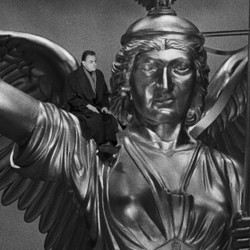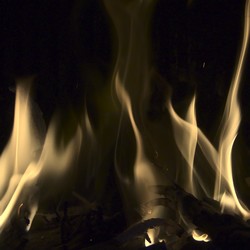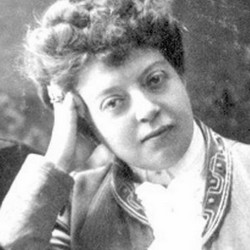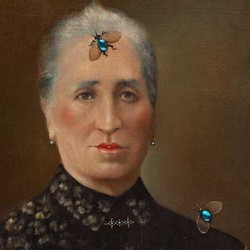- Details

We all have in mind the scene: a boy with an apple on his head and his father, fifty paces away, who has to shoot an arrow through the apple. It's the punishment for having refused to uncover his head before the hat of the Austrian governor Hermann Gessler, a way to accept the subjection to the Habsburg demanded to the inhabitants of Bürglen.
- Details

At Der Himmel über Berlin (Wings of Desire), Wim Wenders' film, the angels wander around the city, invisible to everyone but children; they observe the lives of humans, but they can't interfere. Eventually, we know an angel that renounced to its immortality to become a person, and lives between the Berliners.
- Details

The soldiers sleep around a campfire. All but one, he can't because of the anxiety before the battle next day. And he's homesick, and remembers happy moments with the woman he loves, and fears, and tries to calm down and get to sleep. He could be any man in any war at any time.
- Details

When we search among the Catalan modernist composers, we find great names such as Isaac Albéniz, Josep Anselm Clavé i Camps, Enric Granados, Enric Morera, Felip Pedrell, Eduard Toldrà, Joaquim Serra... without finding a mention to many women composers who were part of that time. This fact has been repeated throughout history, however nowadays we are living an era that is waking up the voices of women that have had an important role and therefore I have decided to contribute [...]
- Details

"Nun hast du Mir den resten Schmerz getan" (Now you have caused me the first pain) is the song that ends Schumann's cycle "Frauenliebe und Liebe" (Woman's love and life) Op.42. In it a woman recounts in the first person the moments of a time-slice in her life (from the time she ceases to feel like a child when she discovers love, to the time when she becomes a mother and, finally, is widowed). Because of this, it has been immersed in controversies surrounding the concepts of sexism [...]












